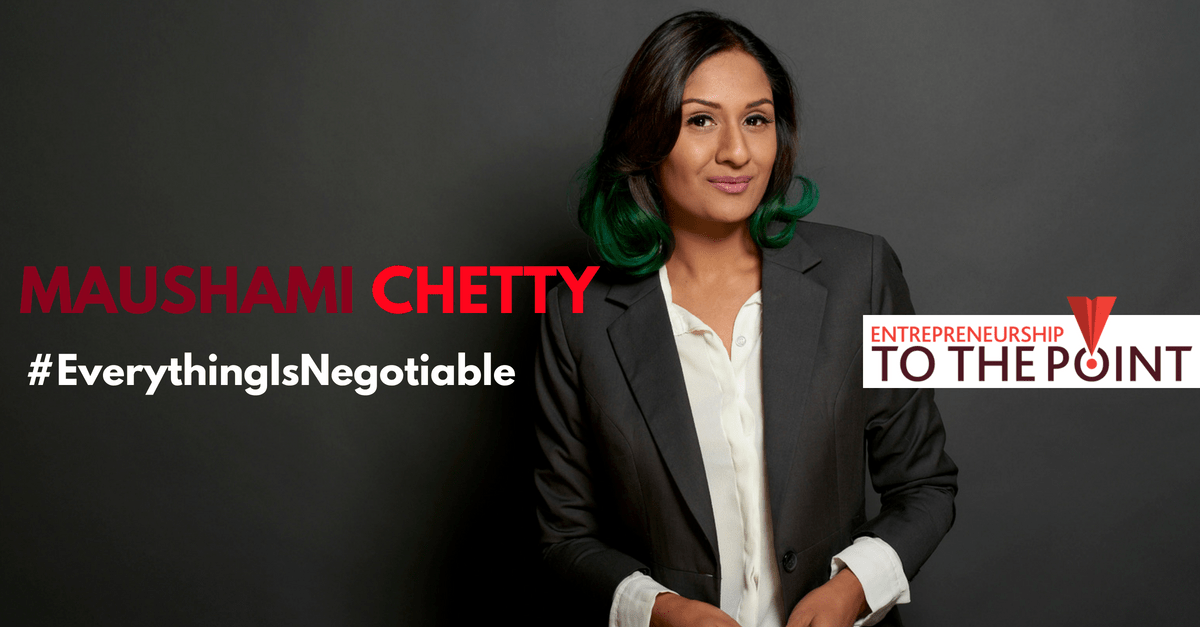
Not every aspiring entrepreneur is a natural deal-maker. Serial entrepreneur and founder and CEO of Aarya Legal, which offers legal services to entrepreneurs and owner-managed businesses, Maushami Chetty, has a unique perspective on the power of negotiation for small and growing businesses.
Negotiation is defined as a discussion aimed at reaching an agreement. So, for successful dealmaking it helps to go into negotiations with the aim of actually reaching an agreement.
Chetty shares important tips to empower you in your next negotiation.
1. Aim for win-win
“Even though, as social creatures, our brains crave reward, it is best to avoid falling into a mindset of win-lose, rather you want a win-win – or at least a perceived win-win,” advises Chetty.
2. Don’t push, pull
“Some may think that it is a good tactic to push your negotiating counterpart, make them feel threatened, put them on edge. But, when people feel like that, they become irrational, so that makes it more difficult to control the negotiation,” notes Chetty.
Essentially, having either negotiating party in an irrational place puts desirable outcomes at risk.
Instead of antagonising your negotiation partner, Chetty’s experience has shown that helping them feel rewarded and valued has better results. One of the tools that she recommends is making a list of low-hanging fruit that you are willing to offer to concede, even if they don’t ask.
“Relating to your counterparts in a way that affirms them in these areas sets a positive foundation for discussions, improves collaborations and helps to influence the way that people behave”
“If you don’t ask, you’ll never know. Try, you may be pleasantly surprised”
3. It’s not all about size
Entrepreneurs need to remember that they can and should negotiate. Small businesses may believe that they do not influence big business, and for good reasons based on past experiences. Things are changing, however, because the value that small businesses can add to big businesses is becoming better understood and increasingly recognised.
“Big corporates are more willing to negotiate than you may expect. Yes, certain things are non-negotiable. But, if you don’t ask, you’ll never know. Try, you may be pleasantly surprised,” encourages Chetty. “Also, if your service is unique, presenting your contract may be a great way to assist corporate legal teams to help understand a new type of business relationship.”
She feels entrepreneurs should always consider negotiating on price or value, risk and assumption of liability, intellectual property, security, confidentiality and non-disclosure and payment terms.
She also believes that working with big corporates isn’t the right move for every entrepreneur. “Sometimes it seems so tasty to work with big corporates, but it may not always be the best for your business. There are times when it is in your best interests to walk away.”
4. Practice, practice, practice
“It’s not easy at first. The more you do it, the better you get,” she reassures. “There’s always someone who has been negotiating longer than you and is better. All the same, often people will like you for doing the right things, even if they are aware of the techniques you are using.”






